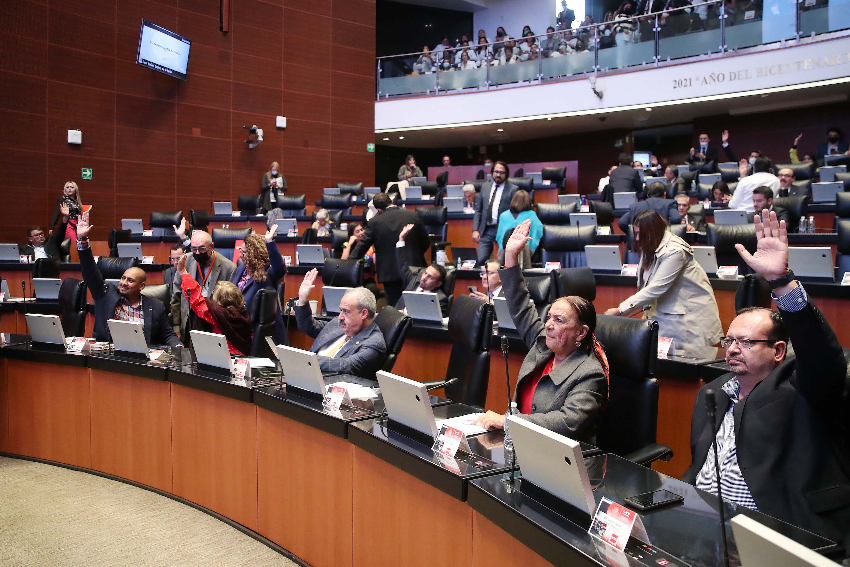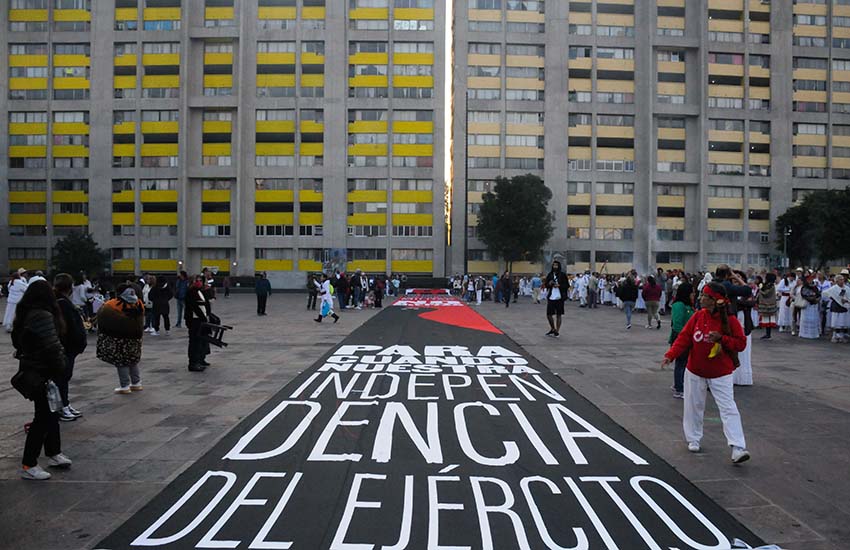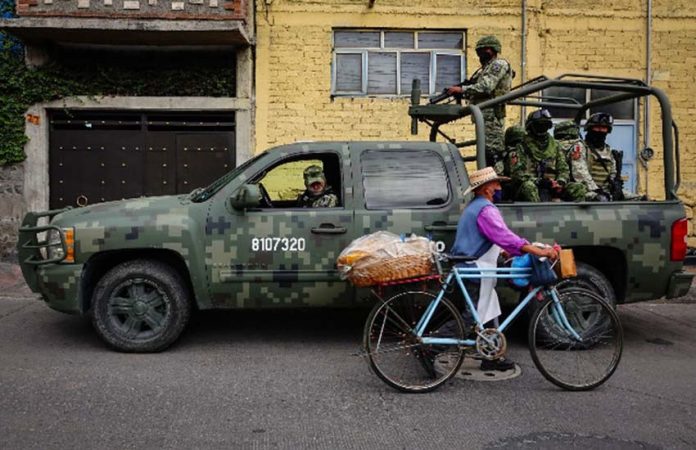The Senate on Tuesday approved a proposal to authorize the use of the armed forces for public security tasks until 2028, delivering a crucial victory to President López Obrador, who says that the ongoing presence of the military on the nation’s streets is essential to guarantee peace.
Eighty-seven senators voted in favor of the constitutional bill that seeks to extend the military’s involvement in public security by four years, while 40 opposed it.
Support for the bill was just over the two-thirds majority required to pass a proposal that seeks to modify the constitution. The proposed reform will now face a vote in the lower house of Congress, where lawmakers already approved an earlier version of the same bill.
Senators modified the bill after the ruling Morena party used its majority in the upper house to block a vote that would have killed off the proposal two weeks ago. Senator Ricardo Monreal, Morena’s leader in the Senate, said at the time that the vote was postponed to “broaden the debate and reach agreements.”

The modifications were sufficient to win the support of some Institutional Revolutionary Party (PRI) and Democratic Revolution Party (PRD) senators who opposed the bill passed by the Chamber of Deputies in mid-September.
Among the modifications are provisions that establish congressional oversight of the public security actions of the military and create a fund that will provide resources for the professionalization of municipal and state police forces.
Monreal said that Congress will become a “watchdog” of the armed forces and hold them to account. He described the congressional oversight mechanism as historic and unprecedented. There will be “parliamentary controls” over the armed forces that “haven’t existed until now,” the senator said.
The chiefs of the army and navy will be required to submit regular reports to Congress and could be summoned to appear before lawmakers.
The current government created the National Guard to lead its public security strategy, but three years after it was inaugurated violent crime remains a significant problem in some parts of the country.
Put forward by a PRI deputy, the original bill proposing a four-year extension to the military’s involvement in public security said that that a “solid and effective” police force “is not built overnight” and therefore, while the National Guard “develops its structure, capacities and territorial establishment,” the president of the day can use the armed forces for public security tasks in an “extraordinary, regulated, controlled, subordinated and complementary way.”
Municipal and state police forces – many of which are made up of poorly paid officers who lack training – have long struggled to contain violence on their own.
The National Action Party (PAN) vehemently opposed the constitutional bill, arguing that it would further perpetuate a long-running militarized public security strategy that has failed. The PRD – part of an opposition alliance that also includes the PAN and PRI – had also opposed it, but two of its senators ended up voting in favor of the modified proposal.

There was a heated debate in the Senate before a vote was held Tuesday night, with PAN senators warning that the ongoing involvement of the military in public security increased the risk that Mexico would see other events like the 1968 Tlatelolco massacre of students in Mexico and the 2014 disappearance of 43 students in Guerrero.
Senator Julen Rementería, PAN’s leader in the upper house, accused Morena of buying votes in order to approve the continuation of a security strategy “that has been a failure.”
The PRI’s support of the bill has already caused cracks to appear in the Va por México opposition alliance.
López Obrador – who said last month that he changed his mind about the need to use the military for public security tasks when he saw the security problem he inherited – expressed his satisfaction with the Senate’s approval of the bill.
“I’d like to take the opportunity to thank the senators because the constitutional reform was approved yesterday,” he said at his Wednesday morning news conference.
“… We have confidence [in the armed forces] because a different idea about [the need for] absolute respect for human rights now prevails,” said López Obrador, who has used the military for a wide range of non-traditional tasks including infrastructure construction and management of customs, and recently succeeded in putting the National Guard under the administrative and operational control of the army.
“… This [reform] has to do with public security, it’s about protecting citizens even while we’re maintaining the security strategy of attending to the causes of violence,” he said.
With reports from El País, La Jornada and El Financiero
